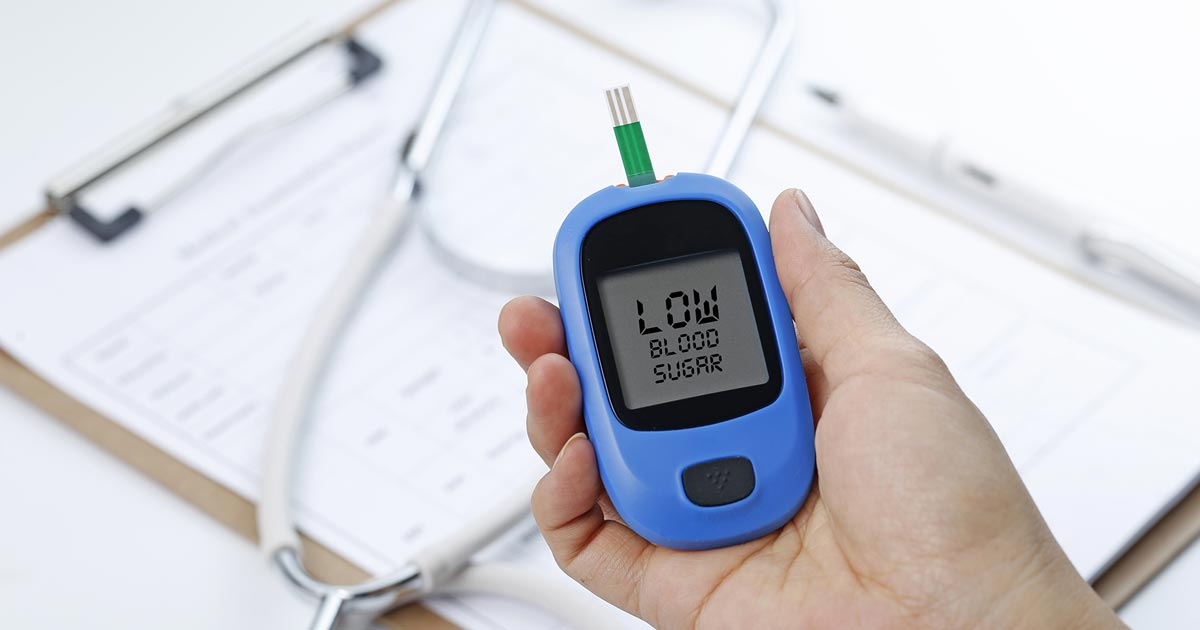Login to your account
- Prescription included
- Genuine medication
- All-inclusive service - No hidden fees
- Free next-day delivery
Understanding Wegovy side effects
Discover the side effects of Semaglutide and how you can manage them
Wegovy is a licensed weight loss medication that contains an active ingredient called Semaglutide (a type of GLP-1 agonist).
When used in combination with a healthy diet and an increase in activity, Wegovy can aid in weight loss and offer promising results.
If you are planning to start taking Wegovy, it’s best to learn about potential side effects. This article will outline common and uncommon side effects and provide advice on managing them.
What are the most common side effects of Wegovy?
Just like with any medication, there’s a chance you’ll experience side effects while taking Wegovy. Side effects vary from person to person. While it’s normal to experience side effects from a medication, it’s also normal to experience none at all.
The most common side effects of Semaglutide (the active ingredient in Wegovy) are:
|
|
Gastric issues
Semaglutide helps with weight loss by slowing down digestion. As a result of this, gastric (stomach) issues are the most common side effect.

According to clinical trials taken on Wegovy, nausea occurs the most in Wegovy patients, affecting 44%. Following this is diarrhoea (30%), vomiting (24%) and constipation (24%).
Gastritis
Wegovy can also cause gastritis, which is inflammation of the stomach lining. Symptoms of gastritis include:
- abdominal pain
- nausea
- vomiting
- indigestion or heartburn
Acid reflux medications like Omeprazole can help to relieve symptoms of gastritis.
Gastric complications on Wegovy can vary from mild to severe. However, for most people, these effects are manageable and subside after several days.
Tiredness
Wegovy also commonly causes tiredness or fatigue. People who are obese often experience chronic fatigue due to their weight. However, when you first begin Semaglutide injections you may feel even more tired than usual.
Additional fatigue is most likely due to a sudden decrease in food intake and blood sugar as the medicine reduces your appetite. But, as you adjust to eating less, your energy levels will likely improve.
Cold-like symptoms
People who start taking Wegovy have also commonly reported cold-like symptoms, including:
- headaches
- sore throat
- blocked or runny nose
- sneezing

It isn’t entirely clear why this happens. If you experience flu-like symptoms that haven’t subsided after a week, consult a doctor or online health professional.
What are the less common side effects of Wegovy?
The following side effects are much less common. However, it’s important to know of any potential risks when starting a new medication, even with low odds.
|
|
Pancreatitis
Acute pancreatitis (inflammation of the pancreas) has been observed in patients treated with Semaglutide. Signs of this condition include:
- severe abdominal pain that doesn’t go away
- abdominal pain that reaches your back
- vomiting
If you experience any signs of pancreatitis, stop taking Wegovy immediately and consult with a health care professional as soon as possible.
Gallbladder problems
The gallbladder is a small organ located in the upper-right part of your stomach. It stores bile, which is a fluid that helps with the digestion of fats.
Treatment with Wegovy has been associated with an increased risk of gallbladder problems, including cholelithiasis (gallstones) and cholecystitis (inflammation of the gallbladder).
In randomised clinical trials, these gallbladder problems were reported in 1.6% of Wegovy patients compared to 0.7% of placebo patients.
Hypoglycaemia
In patients with type 2 diabetes, Wegovy has been found to cause hypoglycaemia (low blood sugar levels).
Signs and symptoms of hypoglycaemia include:
- hunger
- dizziness or lightheadedness
- anxiety or irritability
- sweating
- shaking
- tingling lips
- heart palpitations (when your heart beats more quickly or harder than usual)
- feeling tired/weak

A trial taken on type 2 diabetics (with a BMI of 27 or above) found that 6.2% of Wegovy patients experienced hypoglycaemia compared with 2.5% of placebo patients.
Only one episode of severe hypoglycaemia was reported in the patients treated with Wegovy.
If you have type 2 diabetes and are taking additional inulin, you may be at an increased risk of low blood sugar. Pay close attention to how you feel when starting Wegovy and stop treatment immediately if you recognise any of the above signs or symptoms.
Kidney problems
If you suffer from kidney problems, your condition may worsen as a result of Wegovy side effects (including vomiting and diarrhoea).
To prevent this from happening, remember to stay hydrated throughout the day. As well as maintaining your kidney function and improving digestion, drinking water can promote weight loss by keeping you fuller in between meals.
Vision changes
Type 2 diabetics can experience something called diabetic retinopathy - changes in vision due to damaged blood vessels at the back of the eye.
Wegovy has been reported to slightly increase the risk of retinopathy in diabetic patients. Pay attention to any changes in your vision while taking this medication and report immediately to a doctor if you experience any of the following:
- gradually worsening vision
- a sudden loss of vision
- blurred or patchy vision
- difficulty seeing in the dark
- shapes floating within your field of vision (floaters)
Increased heart rate
Treatment with Wegovy has also been associated with an increase in resting heart rate. If you notice your heart is racing while resting, speak with your health provider.
Mental health problems
If you notice that your mental health is declining while taking Wegovy, stop treatment immediately and talk to your health provider.

Depression and thoughts of suicide have been reported in clinical trials of Wegovy and other weight management medications.
If you’ve struggled with severe depression or anxiety in the past, it is not recommended that you start taking Semaglutide or any other GLP-1 agonists.
Possible thyroid tumours
There is currently no evidence to suggest that Semaglutide can cause cancer in humans. However, one study taken on rodents found a link between GLP-1 agonists (including Semaglutide) and thyroid tumours.
Symptoms of thyroid cancer include lumps or swelling in the neck, hoarseness, trouble swallowing or shortness of breath. Stop treatment and tell your healthcare provider immediately if you experience any of these while taking Wegovy.
Due to these findings, you should not take Wegovy if you have:
- a family history of a type of thyroid cancer called medullary thyroid carcinoma (MTC)
- a condition called Multiple Endocrine Neoplasia syndrome 2 (MEN 2)
How long do side effects last?
There’s no way of knowing exactly how long side effects last, especially as each person will react differently.
Generally, side effects are at their worst when you first start treatment and gradually subside as your body adjusts to the new medicine. This could take a few days or even a few weeks.
The same goes for dose increases. However, as your body will already be familiar with Semaglutide, side effects will likely be lesser than when you first started.
Please note: You must follow the dosage instructions carefully when taking Wegovy. Starting on the lowest dose and gradually increasing each month gives your body time to adjust. That way, you minimise side effects by building up a tolerance to the medicine.
How can I manage Wegovy side effects?
You can manage common Wegovy side effects like nausea by making lifestyle and diet changes or by adjusting your dose.
Lifestyle and diet change
The side effects of Wegovy can feel overwhelming. However, simple changes in how and what you eat can drastically improve how you feel.
To help with nausea and other gastric issues:
- stick to bland foods including crackers, dry toast, and plain rice
- don’t lie down straight after a meal
- eat more liquid foods like plain broth
- go outdoors for some fresh air
- eat slowly, chewing each mouthful thoroughly before swallowing (to aid with digestion)
- drink plenty of water and eat high-fibre foods (fruit and vegetables) to prevent constipation

Certain foods to avoid while on weight loss treatment include:
- fatty foods (including processed meats, fast food, cheese, cream and butter)
- sugary foods (including pasties, sweets, fruit juices, soda and jams)
- salty foods (crisps, white processed bread, frozen pizzas, canned soups)
- alcoholic beverages
Dosage adjustments
Semaglutide side effects tend to worsen when you first start treatment and every time you increase your dose.
To prevent side effects, you can remain on the same dose for longer periods. Similarly, if you experience difficult side effects after a dose increase, you can go back down to your previous dose.
When to report side effects
Unfortunately, nausea and other gastric side effects are very common when you first start taking Semaglutide injections. While your doctor can advise you, there isn’t much you can do aside from changing your diet and waiting for your body to adjust to the treatment.
That being said, it is important to report any unusual side effects to your doctor or healthcare provider. Continuing Wegovy under these circumstances could become dangerous.
Regular check-ups are encouraged so that a doctor can observe your progress and check that you’re responding well to the medication.
Want to learn more about Wegovy?
Click here- Private & confidential serviceDiscreet packaging and encrypted data
- Genuine & branded medicationFrom UK registered pharmacies
- No doctor visit neededOur doctors assess you online
- Free next day deliveryOrder by 4:30 to receive tomorrow
Further reading


Foods to avoid during weight loss treatment: a practical ...
Reviewed by Dr. Caroline Fontana
How many calories do I need to lose weight?
Reviewed by Dr. Caroline Fontana
Understanding Saxenda Side Effects
Reviewed by Dr. Caroline Fontana
Mysimba’s side effects and management
Reviewed by Dr. Caroline FontanaSelect
medicationFill out a short
medical formDoctor issues
prescriptionMedication sent
from pharmacy
